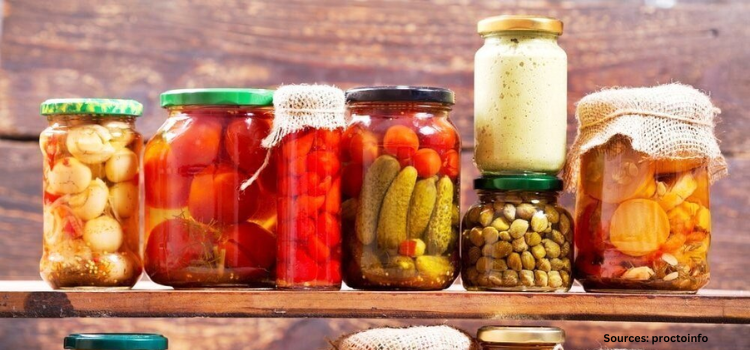
Bakery Market by Product Type (Bread, Cakes and Pastries, Cookies and Biscuits, Others), by Category (Fresh Bakery Products, Frozen Bakery Products, Artisanal Bakery Products, Packaged Bakery Products), by End-User (Residential Consumers, Foodservice Industry), by Distribution Channel (Supermarkets and Hypermarkets, Convenience Stores, Online Stores, Specialty Bakeries) — Global Opportunity Analysis and Industry Forecast, 2022 – 2030
US Tariff Impact on Bakery Market
Trump Tariffs Are Reshaping Global Business
Market Definition:
The global Bakery Market size was valued at USD 366.27 billion in 2021 and is predicted to reach USD 557.59 billion by 2030 at a CAGR of 4.8% from 2022 to 2030. Bakery products are part of the processed food class, which includes breakfast cereals, cookies, donuts, pastries, and customized bakery products.
Among bakery products, bread & biscuits are the most popular and nutritional products. Bakery products are in high demand due to their pleasant taste and health benefits, as they are made from various grains such as maize, wheat, and oats. The other ingredients used for baking include eggs, baking soda, and nuts. These products provide both convenience and affordability to buyers.
Market Dynamics and Trends:
The demand for bakery products is high due to the availability of low trans-fat, whole grain, low fat, multigrain, and organic baked merchandise, making these products more preferable among consumers. In addition, advanced technologies such as microencapsulation that keep the products resistant to probiotic bacteria and individual quick-frozen technology are expected to boost the market growth. Moreover, growing consumption of ready-to-eat snacks due to busy life schedules and rising demand for varied products such as donuts, bread, cakes, pastries, and pies drive the market growth.
Furthermore, a growing number of bakery product businesses coupled with the increasing availability of various online sites that deliver cakes and pastries with ferns & petals and gift baskets to the doorsteps are expected to further propel the growth of the bakery products market.
However, food products prepared using refined flour, which is perceived as unhealthy and cause various diseases such as diabetes and obesity, hamper the market growth. On the contrary, the women population is getting engaged in jobs, which leaves them less time to cook, which will drive the market growth. Also, rising demand for cakes and pies for birthday & anniversary celebrations is expected to create ample growth opportunities for the market in the coming years.
Market Segmentations and Scope of the Study:
The bakery products market is segmented based on type, product, claim, form, distribution channel, and geography. Based on type, the market is categorized into breakfast, specialty snacks, and hybrids. On the basis of product, the market is segmented into bread & rolls, cakes & pastries, cookies, tortillas, pretzels, and others. On the basis of claim, the market is classified into gluten-free and organic. On the basis of form, the market is bifurcated into fresh, frozen, and others. On the basis of distributional channel, the market is divided into hypermarkets, specialty stores, supermarkets, and online. The report contains the geographical breakdown and analysis of each of the abovementioned segments across four regions, namely North America, Europe, Asia-Pacific, and Rest of the World (Row).
Geographical Analysis:
Europe currently holds the dominant bakery market. It is expected to maintain its dominance during the forecast period due to factors such as busy lifestyle of individuals and expansion of fast-food businesses that employ middle-class people to make burgers, snacks, and sandwiches. Also, the availability of organic baked items, breakfast cereals, and allergy-free baked products suitable for people suffering from allergies and intolerances boosts the market growth in this region.
In addition, the growing demand for bread as an everyday staple nutritious food and the easy availability of essential raw materials required for manufacturing bakery products that include milk, emulsifiers, fat, stabilizer, flavors, sugar, and flour are expected to drive the market in this region.
On the other hand, the market in North America is expected to show swift growth due to the growing demand for frozen bakery products such as muffins and croissants. This trend is attributed to the need to prolong the shelf life of frozen bakery products and the high demand for personalized cakes for special occasions and parties. Moreover, consumers are exploring new tastes, products, and flavors coupled with low-calorie bakery products, which drive the growth of the market. Moreover, the availability of locally milled flour that does not contain flour-bleaching agents or flour-treatment agents is expected to drive the growth of the bakery market in this region.
Competitive Landscape
The bakery products market comprises various market players such as Nestlé S.A., PepsiCo, Grupo Bimbo, Mondelez International, Associated British Foods Plc, General Mills Inc., Yamazaki Baking Co., Ltd., Flowers Foods, Finsbury Food Group Plc, Warburtons Ltd., Britannia Industries Limited, Hostess Brands, Campbell Soup Company, McKee Foods, Arca Continental. These market players are adopting various strategies, such as product innovation and partnerships across various regions, to maintain their dominance in the bakery market.
For instance, in March 2021, Mmmly launched plant-based cookies in four flavors: banana chocolate chip, blueberry shortbread, dark chocolate chip, and sweet almond. These cookies were made from clean, healthy ingredients such as prebiotic fiber, root vegetables, and fruits to support a healthy lifestyle. Moreover, in September 2020, Nestle signed a partnership with Downs Foods to produce sweet treats such as muffins and cookies in Europe and the Middle East. They also launched a new product called the KitKat muffin, which contains milk chocolate and is covered with kit kat chocolate toppings.
Key Benefits
-
The bakery market report provides a quantitative analysis of the current market and estimations from 2022 to 2030 that assist in identifying and capitalizing on the prevailing market opportunities.
-
The study comprises a deep dive analysis of the bakery products market trend, including the current and future trends for depicting the prevalent investment pockets in the market.
-
The information related to key drivers, restraints, and opportunities and their impacts on the bakery products market is provided in the report.
-
The competitive analysis of the market players, along with their market shares in the bakery market, is included in the study.
-
The SWOT analysis and Porter’s Five Forces model are elaborated in the study.
-
The report contains a value chain analysis of the market to get a clear picture of the stakeholders’ roles.
Bakery Market Key Segments
By Product Type
-
Bread
-
White Bread
-
Whole Grain Bread
-
Specialty Bread
-
-
Cakes and Pastries
-
Sponge Cakes
-
Cheese cakes
-
Puff Pastries
-
-
Cookies and Biscuits
-
Chocolate Chip
-
Butter Cookies
-
Crackers
-
-
Others
By Category
-
Fresh Bakery Products
-
Frozen Bakery Products
-
Artisanal Bakery Products
-
Packaged Bakery Products
By End-User
-
Residential Consumers
-
Foodservice Industry
-
Restaurants
-
Cafeterias
-
By Distribution Channel
-
Supermarkets and Hypermarkets
-
Convenience Stores
-
Online Stores
-
Specialty Bakeries
By Geography
-
North America
-
The U.S.
-
Canada
-
Mexico
-
-
Europe
-
The U.K.
-
Germany
-
France
-
Italy
-
Spain
-
Denmark
-
Netherlands
-
Finland
-
Sweden
-
Norway
-
Russia
-
Rest of Europe
-
-
Asia-Pacific
-
China
-
Japan
-
India
-
South Korea
-
Australia
-
Indonesia
-
Singapore
-
Taiwan
-
Thailand
-
Rest of Asia-Pacific
-
-
Rest of World
-
Latin America
-
Middle East
-
Africa
-
Key Players
-
Nestlé S.A.
-
PepsiCo
-
Grupo Bimbo
-
Mondelez International
-
Associated British Foods Plc
-
General Mills Inc.
-
Yamazaki Baking Co., Ltd.
-
Flowers Foods
-
Finsbury Food Group Plc
-
Warburtons Ltd.
-
Britannia Industries Limited
-
Hostess Brands
-
Campbell Soup Company
-
McKee Foods
-
Arca Continental

















 Speak to Our Analyst
Speak to Our Analyst





















